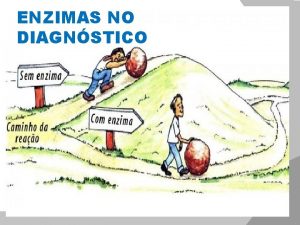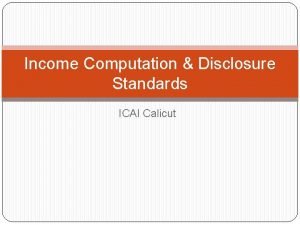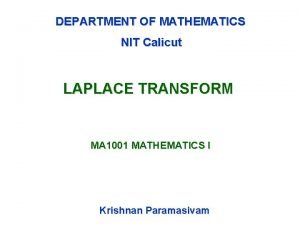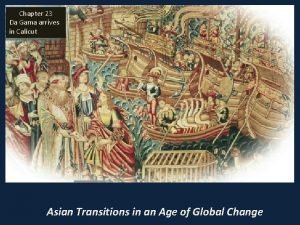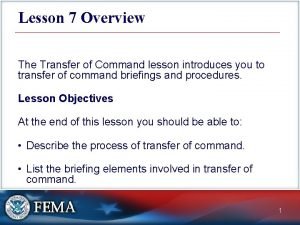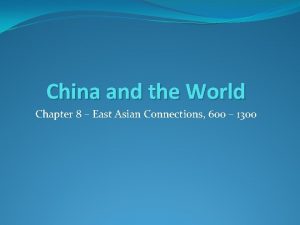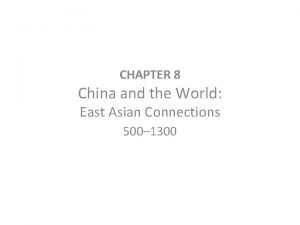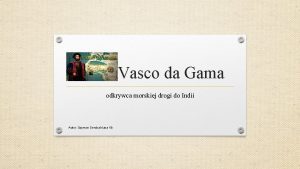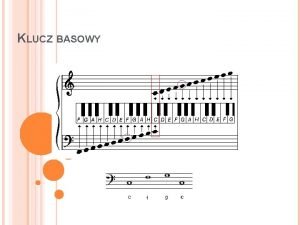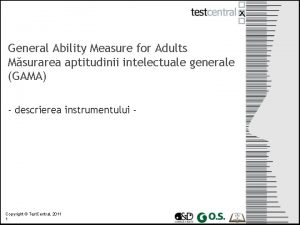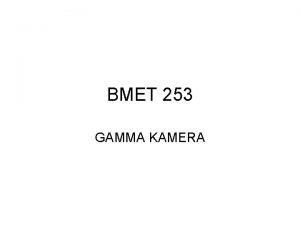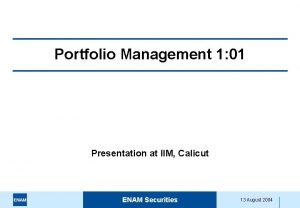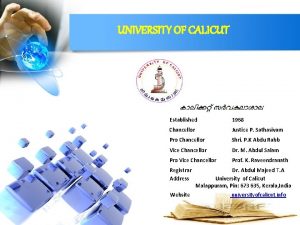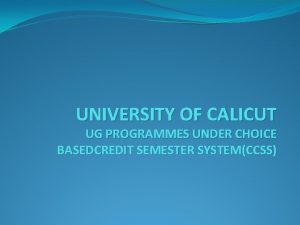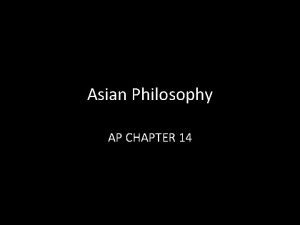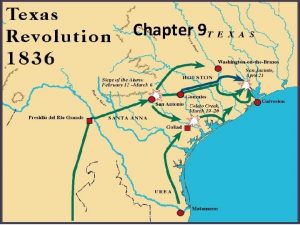Chapter 23 Da Gama arrives in Calicut Asian



























- Slides: 27

Chapter 23 Da Gama arrives in Calicut Asian Transitions in an Age of Global Change

Contextualizing: 1350 -1750 CE: Gunpowder Empires and European urban growth Asia: Mongol Yuan Dynasty, Decline of Mongols, Rise of Ottomans, Safavids, Mughals, Rise of Ming Dynasty Europe: Holy Roman Empire, Nationalism, Renaissance, Unification of Spain, Age of exploration, Reformation, Americas colonized Africa: Asante Kingdom rises, East African trade, Cross Atlantic Slave Trade Asian Transitions in an Age of Global Change

Asian Transitions in an Age of Global Change

23. 1 Where were the major centers of the Indian Ocean trading system located? Which products exchanged in this system did the Portuguese seek to use force to monopolize and ship back to Europe? How successful were they, and why? Asian Sea Trading Network Asian Transitions in an Age of Global Change

23. 1 Where were the major centers of the Indian Ocean trading system located? Which products exchanged in this system did the Portuguese seek to use force to monopolize and ship back to Europe? How successful were they, and why? Asian Sea Trading Network Arabian products: Glass, Carpet, Tapestries India’s products: Cotton Textiles China’s products: Paper, Silk, Porcelain East Africa: raw materials, precious metals, jewels Asian Transitions in an Age of Global Change

23. 1 Where were the major centers of the Indian Ocean trading system located? Which products exchanged in this system did the Portuguese seek to use force to monopolize and ship back to Europe? How successful were they, and why? Portuguese meet resistance in Calicut Mercantilism- nation’s (monarch’s) power depended on wealth in precious metals (gold and silver), so all trade must bring wealth to monarch… Da Gama is forced to spend silver to acquire trade goods because Portuguese goods are inferior to Asian products Portuguese turn to force. Calicut. Ormuz and Goa captured; Factories (warehouses that are also forts) Chinese sea going vessels are too large to be threatened by Portuguese cannons Spice Monopoly (Nutmeg and Cinnamon)- Asian Transitions in an Age of Global Change

23. 1 Where were the major centers of the Indian Ocean trading system located? Which products exchanged in this system did the Portuguese seek to use force to monopolize and ship back to Europe? How successful were they, and why? Port of Lisbon becomes a center of world trade Asian Transitions in an Age of Global Change

23. 1 Where were the major centers of the Indian Ocean trading system located? Which products exchanged in this system did the Portuguese seek to use force to monopolize and ship back to Europe? How successful were they, and why? Port of Lisbon becomes a center of world trade Nutmeg and Cinnamon; the Portuguese attempt at monopoly Asian Transitions in an Age of Global Change

23. 1 Where were the major centers of the Indian Ocean trading system located? Which products exchanged in this system did the Portuguese seek to use force to monopolize and ship back to Europe? How successful were they, and why? Dutch and English competition. Dutch Trading Empire. Java- spices, carrying fees, and marketing Asian products Coffee! Asian Transitions in an Age of Global Change

23. 1 Where were the major centers of the Indian Ocean trading system located? Which products exchanged in this system did the Portuguese seek to use force to monopolize and ship back to Europe? How successful were they, and why? Dutch and English competition. Dutch hold the British out of Spice Islands. English Focus on India. Spanish establish themselves in the Philippines. The problem of Mindanao- Asian Transitions in an Age of Global Change

23. 2 Why were the European merchants and missionaries so interested in establishing relations with and bases in China, and why were the Chinese so resistant to their overtures? The Missionary Enterprise in South and Southeast Asia The English and Dutch (Protestants) do not send missionaries… The Portuguese and Spanish Catholicism and Jesuit Missions India-Francis Xavier, Robert di Nobili Philippines- Luzon under Spain is converted Asian Transitions in an Age of Global Change

23. 2 Why were the European merchants and missionaries so interested in establishing relations with and bases in China, and why were the Chinese so resistant to their overtures? The Missionary Enterprise in Ming China: What will make this difficult? The Hong. Wu Emperor—a Buddhist monk become rebel leader, becomes king Ming Dynasty removes all traces of Mongol (Yuan) rule and customs Asian Transitions in an Age of Global Change

23. 2 Why were the European merchants and missionaries so interested in establishing relations with and bases in China, and why were the Chinese so resistant to their overtures? Ming Dynasty removes all traces of Mongol (Yuan) rule and customs Hong. Wu returns to the Confucian Exam system Fierce competition (150 degrees conferred, 4, 000 examinees) Scholar. Gentry class returns to dominance Asian Transitions in an Age of Global Change

23. 2 Why were the European merchants and missionaries so interested in establishing relations with and bases in China, and why were the Chinese so resistant to their overtures? Women lose the social advances gained under the Yuan (Mongol) Dynasty in the return to Confucian values Asian Transitions in an Age of Global Change

23. 2 Why were the European merchants and missionaries so interested in establishing relations with and bases in China, and why were the Chinese so resistant to their overtures? European trade brings China wealth in silver. Silk. Tea. Porcelain. Lacquerware. Columbian exchange brings China Maize (corn), Sweet potatoes and peanuts to become staple foods of south China European trade is restricted to two cities: Macao Canton Asian Transitions in an Age of Global Change

23. 2 Why were the European merchants and missionaries so interested in establishing relations with and bases in China, and why were the Chinese so resistant to their overtures? Reign of Yong. Le and the voyages of Zheng He- Asian Transitions in an Age of Global Change

23. 2 Why were the European merchants and missionaries so interested in establishing relations with and bases in China, and why were the Chinese so resistant to their overtures? Reign of Yong. Le and the voyages of Zheng He- Portuguese cannon on ships are not big enough to threaten the Dragon Ships… Asian Transitions in an Age of Global Change

23. 2 Why were the European merchants and missionaries so interested in establishing relations with and bases in China, and why were the Chinese so resistant to their overtures? The Missionary Enterprise in Ming China: What will make this difficult? Ming Dynasty returns to the Confucian philosophy Europeans limited to coastal areas Dominicans, Franciscans and Jesuits Dominicans and Franciscans. Converting the underclasses Limited success; 300 Million Chinese, tens of thousands converts of the poorest and least influential commoners Asian Transitions in an Age of Global Change

23. 2 Why were the European merchants and missionaries so interested in establishing relations with and bases in China, and why were the Chinese so resistant to their overtures? The Missionary Enterprise in Ming China: What will make this difficult? Jesuits trying to convert the upper class…very few upper class converts Matteo Ricci. Adam Schall- Asian Transitions in an Age of Global Change

23. 2 Why were the European merchants and missionaries so interested in establishing relations with and bases in China, and why were the Chinese so resistant to their overtures? The Ming Dynasty Declines * Weak rulers* Corrupt officials* Failure to maintain infrastructure (flood control) * Unrestricted greed by landowners who evict farmers * Famines and droughts The Jurchen invasion. Beijing captured Chong. Zhen commits suicide (last Ming Emperor) 1644 The Manchu rule China; Ching Dynasty begins Asian Transitions in an Age of Global Change

23. 3 Why did the rulers of Japan initially welcome European traders and missionaries and why did they ultimately expel all but the Dutch? Oda Nobunaga reunifies Japan- 1573 Adopts western weapons (muskets) Last Ashikaga Shoguns deposed Central Honshu united Assassinated in campaign against last of the western daimyo Miniseries “Shogun” set in this period Asian Transitions in an Age of Global Change

23. 3 Why did the rulers of Japan initially welcome European traders and missionaries and why did they ultimately expel all but the Dutch? Hideyoshi continues the campaign 1590 - the military hegemon (ruler) 1 st invasion of Korea 2 nd invasion of Korea Dies in 1598 Asian Transitions in an Age of Global Change

23. 3 Why did the rulers of Japan initially welcome European traders and missionaries and why did they ultimately expel all but the Dutch? Asian Transitions in an Age of Global Change

23. 3 Why did the rulers of Japan initially welcome European traders and missionaries and why did they ultimately expel all but the Dutch? The European Challenge Firearms, Printing Presses and Missionaries Portuguese and Jesuits are initially welcomed by Nobunaga Hundreds of thousands of converts by 1580 s Asian Transitions in an Age of Global Change

23. 3 Why did the rulers of Japan initially welcome European traders and missionaries and why did they ultimately expel all but the Dutch? Hideyoshi fears western subversion of Japan’s social order Christian missionaries expelled, Christianity banned 1614 Japan is closed to all outside countries; Dutch traders are permitted to stay on island of Deshima, the only port open Asian Transitions in an Age of Global Change

23. 3 Why did the rulers of Japan initially welcome European traders and missionaries and why did they ultimately expel all but the Dutch? Tokugawa Ieyasu becomes Shogun Edo (Tokyo) seat of power Asian Transitions in an Age of Global Change

23. 3 Why did the rulers of Japan initially welcome European traders and missionaries and why did they ultimately expel all but the Dutch? Tokugawa Ieyasu becomes Shogun Edo (Tokyo) seat of power Japan remains isolated until the 18 th Century and the establishment of the School of National Learning Asian Transitions in an Age of Global Change
 Gama glutamiltransferase (gama-gt)
Gama glutamiltransferase (gama-gt) Nit calicut chemistry department faculty
Nit calicut chemistry department faculty Icai calicut
Icai calicut Icai calicut
Icai calicut Cedti calicut
Cedti calicut Icai calicut
Icai calicut Nit calicut mathematics department
Nit calicut mathematics department Icai calicut
Icai calicut What goes up but never comes down
What goes up but never comes down Priest in oedipus rex
Priest in oedipus rex Both new hampshire and new york desire more territory
Both new hampshire and new york desire more territory When command is transferred the process should include a
When command is transferred the process should include a Chapter 8 china and the world east asian connections
Chapter 8 china and the world east asian connections Chapter 8 china and the world east asian connections
Chapter 8 china and the world east asian connections Natu pavadinimai
Natu pavadinimai Odkrycie drogi morskiej do indii data
Odkrycie drogi morskiej do indii data Uhly znaky
Uhly znaky Gama ışıması
Gama ışıması Alfa beta gama bozunmaları
Alfa beta gama bozunmaları Klucz basowy
Klucz basowy Testul gama
Testul gama Gama cromatica
Gama cromatica Geco minero artesanal
Geco minero artesanal Radiacao alfa beta gama
Radiacao alfa beta gama Pinhol kolimatör nedir
Pinhol kolimatör nedir Gama karboksilasyon
Gama karboksilasyon Es dur gama
Es dur gama Mariano sanchez castellanos
Mariano sanchez castellanos
